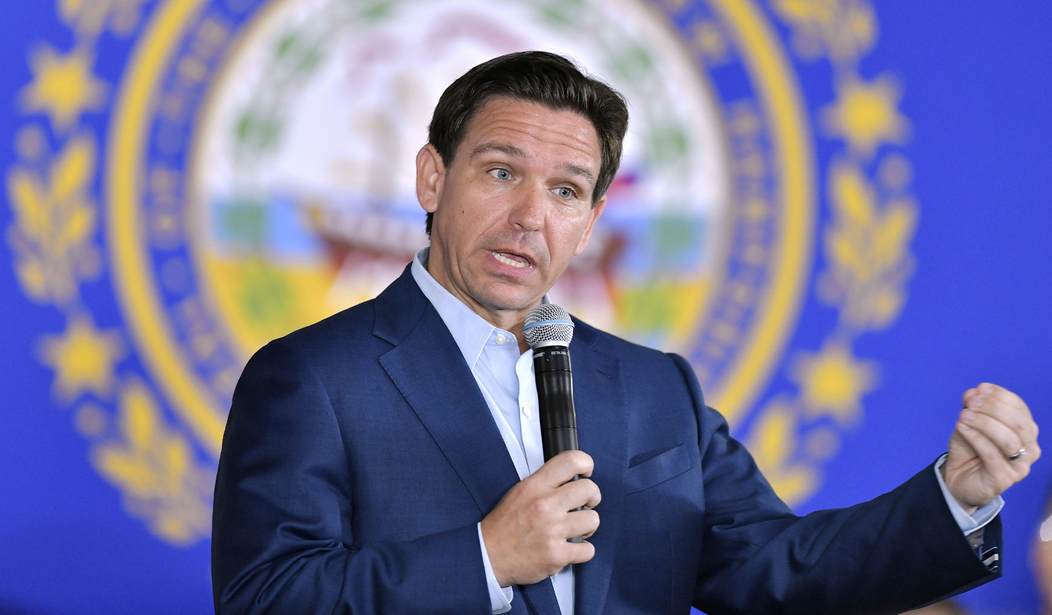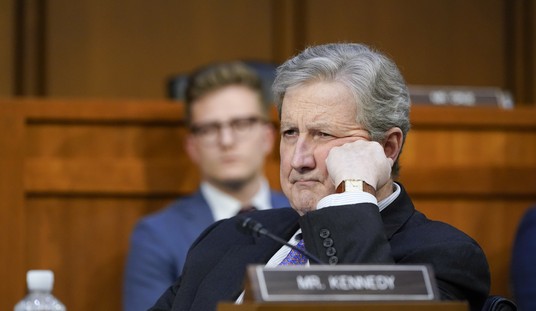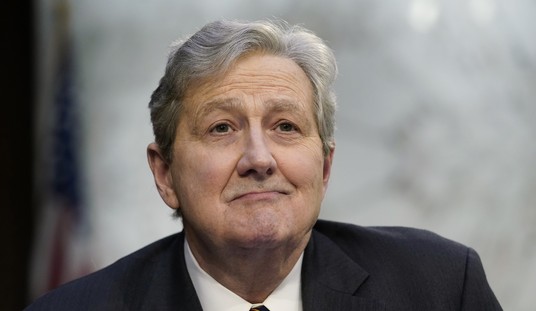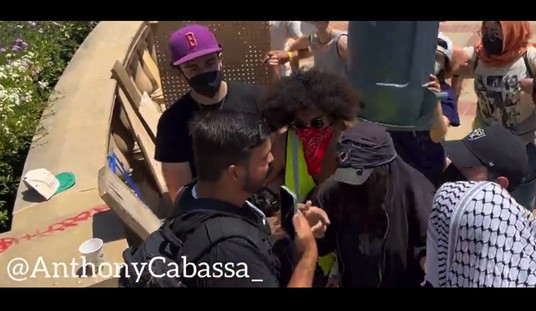The nationwide debate over Florida’s new educational standards related to the teaching of black history continues to rage. Gov. Ron DeSantis and Republicans have found themselves under scrutiny for a particular line in the new curriculum regarding America’s history with chattel slavery.
The current discussion highlights the broader issue of maintaining historical accuracy while avoiding the influence of politics in K-12 classrooms. It is part of an overall debate that has been the focus of attention over the past three years, when the furor over the teaching of ideas related to critical race theory (CRT) hit the national stage.
The latest controversy began when it was reported that Florida’s new curriculum suggested focusing on how some slaves used skills they obtained while under bondage to advance themselves after being freed. It also focused on violence committed to and by black slaves at the time. “Instruction includes how slaves developed skills which, in some cases, could be applied for their personal benefit,” the new educational standards read.
Naturally, Democrats and their close friends and allies in the establishment media pounced, claiming that Gov. DeSantis and the state’s Republicans were trying to downplay the severity of slavery by focusing on how it supposedly helped slaves. Vice President Kamala Harris made a special trip to the Sunshine State to claim that Republicans “want to replace history with lies.”
But what is noteworthy about this particular episode is that it wasn’t only folks on the left who questioned the inclusion of this standard. Black conservatives came out in full force on social media to criticize the move:
The new African-American standards in FL are good, robust, & accurate. That being said, the attempt to feature the personal benefits of slavery is wrong & needs to be adjusted. That obviously wasn't the goal & I have faith that FLDOE will correct this.https://t.co/muq8zi1p85
— Congressman Byron Donalds (@RepDonaldsPress) July 26, 2023
📢 The Black Conservative Federation strongly condemns Governor DeSantis and his State Board of Education's position regarding slaves' learning skills. This stance undermines the historical reality of slavery and the unimaginable hardships endured by millions of enslaved… pic.twitter.com/lzr8DmiJwe
— Black Conservative Federation (@BCFOfficial_) July 26, 2023
DeSantis is showing you the Establishment Republicans CLEARLY… there's a REASON they lost the Black vote by 90% for 60 years… and they are sticking to the game plan
— Sonnie Johnson (@SonnieJohnson) July 27, 2023
No my friend, on this page of the curriculum @RonDeSantis & his appointees Critical Slave Theory created
This time it's 1619 Critical Slave Theory that looks to compare European captives in other countries but it's outlined in
Drumroll..
African American 'HISTORY' Strand https://t.co/maoJHytwXz pic.twitter.com/H5DW0qL4pd
— Karece Thompson (@GOPKT801) July 21, 2023
SLAVES DONT BENEFIT FROM SLAVERY! pic.twitter.com/uY3VdfixuH
— Gabrielle Clark (@GabsClark5) July 27, 2023
Darvio Morrow, host of “The Outlaws” podcast, and a black conservative, told RedState:
I don’t know why the DeSantis camp refuses to see that they are even alienating Black folks who share many of their ideological views. According to Pew Research, supermajorities of both Black Republicans and Democrats believe that our ancestry is an important part of our personal identities. When it comes to careless conversations about slavery, most of us will not tolerate that, regardless of our political views.
In my estimation, that line, by itself, is not the real problem. Sure, it is poorly worded. But even progressives have acknowledged that at least some slaves used the skills they honed while they were in bondage to advance themselves once they were freed.
I would contend that the real issue here isn’t the teaching standard, but the broader context surrounding the controversy it sparked.
Allow me to explain.
Gov. DeSantis’ war on woke, along with that of many other Republican officials and conservative influencers, has created the perception, whether right or wrong, that Republicans are hostile to the idea of teaching accurate history about slavery and other issues pertaining to America’s history with race. The policies, rhetoric, and actions have given many Americans the impression that the backlash against critical race theory is less about principle and more about watering down America’s flawed history with race.
When Florida passed the Stop WOKE Act, I agreed with parts of it and disagreed with others. Not only did it want to limit or eliminate diversity training in public institutions, it also sought to do the same in private entities like corporations. The fact that the Florida GOP wanted to pass a state law to control how companies dealt with race and diversity rubbed many, including my libertarian self, the wrong way. This provision is currently being challenged in court and will likely be overturned.
The governor’s feud with the College Board over an Advanced Placement Studies course also gave the perception that Florida’s Republicans sought to water down history. Note, I am not commenting on whether Florida’s objections to the course were warranted or not, I’m simply talking optics.
The hyperfocus on being anti-woke has led folks to overreact to what they perceive as critical race theory. In short, they seemed to see CRT even in areas where it doesn’t exist. This is what led a Florida school district to try to ban a movie about Ruby Bridges because a parent complained that it might cause white children to hate black children. Duval County removed several books on black history from its school libraries, including one on historian Carter Woodson, who invented Black History Month, and another about women who helped slaves escape their masters through the Underground Railroad.
It would not be fair to argue that DeSantis and Republicans in the Sunshine State are solely responsible for the overcorrection against progressive ideas on race. It has been a national issue. A Moms for Liberty chapter in Tennessee attempted to ban several books on various aspects of black history, including a book written about Ruby Bridges, the first black child to attend a segregated white school.
Recently, an Oklahoma superintendent argued that teachers should teach about the Tulsa massacre without mentioning the racial aspect of the atrocity committed back in 1921. The key point is that, along with targeting material that might actually be problematic, folks on the right are also going after material that is not. The examples I laid out are only a small sampling illustrating how some have gone to the other extreme while claiming to fight indoctrination.
Considering all of the elements involved in what we are seeing today, can it truly be a surprise that people are speaking out so forcefully against what was included in Florida’s curriculum? If this story had happened five years ago, nobody would have cared. Sure, some might have complained, or made fun of it, but it wouldn’t have been national news. But the current political climate has created an environment in which Republicans will not be given the benefit of the doubt – and not just from Democrats.
As I see it, this could be a time for folks on the right to have productive discussions on this issue. As I have already shown, it wasn’t just the left who pushed back against this part of the curriculum. Several black conservatives indicated that they actually had no problem with the rest of the standards – they took issue with this one part. It’s a conversation worth having. However, focusing only on this part of the story would risk getting lost in the minutiae. We can’t afford to miss the overarching theme here: What is the most effective way to eliminate political bias, in either direction, in the classroom? As the nation continues to wrestle with the complexities of teaching history, it is important that the adults in the room should prioritize principles over politics.














Join the conversation as a VIP Member